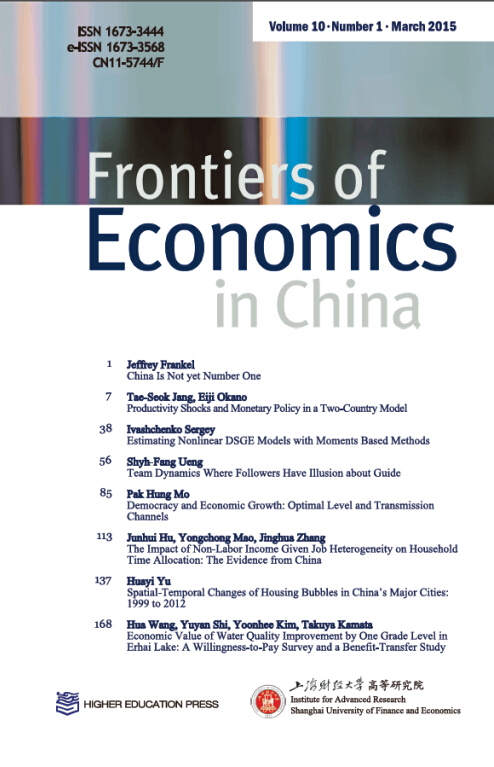The Impact of China, the EU, and the US on Africa through the Lens of Output Growth and FDI
IF 1.5
4区 经济学
Q2 ECONOMICS
引用次数: 1
Abstract
This study uses a vector of FDI-weighted real gross domestic product (GDP) growth rates as proxy for the output growth of China, the European Union (EU), and the United States (US). Using a two-stage least squares estimator over a sample of 42 sub-Saharan African countries for the period 2003–2012, our findings reveal that only the EU’s output spillovers have a significant impact on sub-Saharan Africa’s growth: a 1% increase (decrease) in the EU’s output growth can lead to a 0.02% increase (decrease) in sub-Saharan Africa’s real GDP per capita. The results obtained from the panel threshold regression analysis indicate that this linkage is not conditional on the availability of natural resources, unlike the output spillovers from the US and China, which bear a positive impact only in countries with resource rents of at least 24.3% and 24.1%, respectively. These are mostly oil-abundant countries, implying that China’s motive for natural resources in Africa is not different from that of the US. While the resource rents threshold level of 24.3% can serve as the benchmark for natural resource management policies to benefit from both China and the US output spillovers, a diversified FDI is also encouraged to minimize the risk associated with the resource growth paradigm.从产出增长和外国直接投资看中国、欧盟和美国对非洲的影响
本研究使用外商直接投资加权的实际国内生产总值(GDP)增长率作为中国、欧盟(EU)和美国(US)产出增长的代表。利用2003-2012年期间42个撒哈拉以南非洲国家样本的两阶段最小二乘估计,我们的研究结果表明,只有欧盟的产出溢出对撒哈拉以南非洲的增长有显著影响:欧盟产出增长增加(减少)1%,可以导致撒哈拉以南非洲实际人均GDP增加(减少)0.02%。面板阈值回归分析的结果表明,这种联系不以自然资源的可获得性为条件,这与美国和中国的产出溢出效应不同,后者仅在资源租金分别至少为24.3%和24.1%的国家才会产生积极影响。这些国家大多是石油资源丰富的国家,这意味着中国在非洲获取自然资源的动机与美国没有什么不同。虽然24.3%的资源租金门槛水平可以作为自然资源管理政策的基准,以从中美两国的产出溢出中受益,但也鼓励多样化的外国直接投资,以最大限度地降低与资源增长模式相关的风险。
本文章由计算机程序翻译,如有差异,请以英文原文为准。
求助全文
约1分钟内获得全文
求助全文
来源期刊

Frontiers of Economics in China
ECONOMICS-
CiteScore
1.20
自引率
0.00%
发文量
373
期刊介绍:
Frontiers of Economics in China seeks to provide a forum for a broad blend of peer-reviewed academic papers of economics in order to promote communication and exchanges between economists in China and abroad. It will reflect the enormous advances that are currently being made in China in the field of economy and society. In addition, this journal also bears the mission of introducing the academic achievements on Chinese economics research to the world.
 求助内容:
求助内容: 应助结果提醒方式:
应助结果提醒方式:


